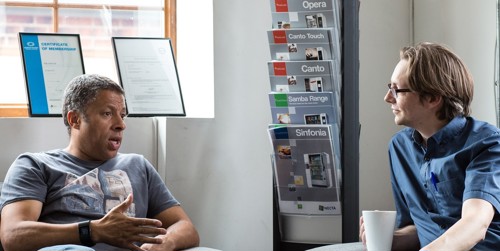Starting university: a guide for students

The first year of uni is the chance to get used to focusing on just one thing, which can be a strange transition to make following school. You may need to get used to the new ways that material is presented, and either long contact hours or few contact hours depending on your subject.
While there is less pressure to score highly during the first year as scores do not normally count towards your final award, you will still want to do well. Most universities will allocate a personal tutor or advisor from your faculty, and it’s wise to get to know who to turn to for help before you need it.
If you had any academic support while at school or college, you may be entitled to this now. Speak to the disability advice team - they’ll cover everything from physical disabilities to dyslexia and beyond. Ask for all the support you can; you are entitled to it.
In general, students tend to fall into one of two categories:

The Optimist
You’re excited to be focusing on something that you love and can’t wait to expand your knowledge and specialise.
Your course might match your expectations and you’ll be stretched and enthusiastic throughout your degree, which can be an amazing experience.
Realistically, however, there are likely to be modules that are disappointing or lecturers who are not very interesting. Look at the bigger picture and see if you can change modules if they’re not the right ‘fit’ for you and not essential to you.
It’s likely that things you found easy before will be harder at degree level. You may find yourself competing with people who are better at some things than you. Don’t let this undermine your own abilities. Try not to judge yourself against others.

The Worrier
You’re worried that you are not good enough and everyone else is better than you. You’re not sure you’ve picked the right course or you may already be thinking of changing university.
The thought of deadlines and presentations makes you feel incredibly anxious, and you worry that you will have so much work to do that you will have to work 18 hours a day.
In reality, you’ve been awarded your place at uni because you are good enough. You’re an individual with your own unique strengths.
If you’re having serious doubts about your course, discuss them with your academic advisor or tutor and explore options. Sometimes it just takes a few weeks to adjust to new ways of working and different teaching styles.
If you are set on moving university, it’s not impossible: do your research, consult with departments from your current and prospective uni and speak to student finance. Get as much information as you can - and discuss it with your friends and family - before you make your final decision.
The workload will likely be more than you are used to. First year is the time to adapt to a new style of learning. Always speak to your academic advisor if you’re struggling with deadlines and ask for support - they can help you manage things, and it’s much better to be open than letting problems build up.
Remember: your university wants you to succeed, so ask for help. Don’t work 18 hours a day: take time to rest, eat, exercise and socialise. Work out a routine that allows you to stay well and look after your wellbeing.

Resources
Was this article helpful?
Your feedback helps us create better content so if this article helped, please leave a like below and let others know.
The Charlie Waller Trust
The Charlie Waller Trust is a registered charity in England and Wales 1109984. A company limited by guarantee. Registered company in England and Wales 5447902. Registered address: The Charlie Waller Trust, First Floor, 23 Kingfisher Court, Newbury, Berkshire, RG14 5SJ.
Copyright © 2024 The Charlie Waller Trust. All rights reserved.




